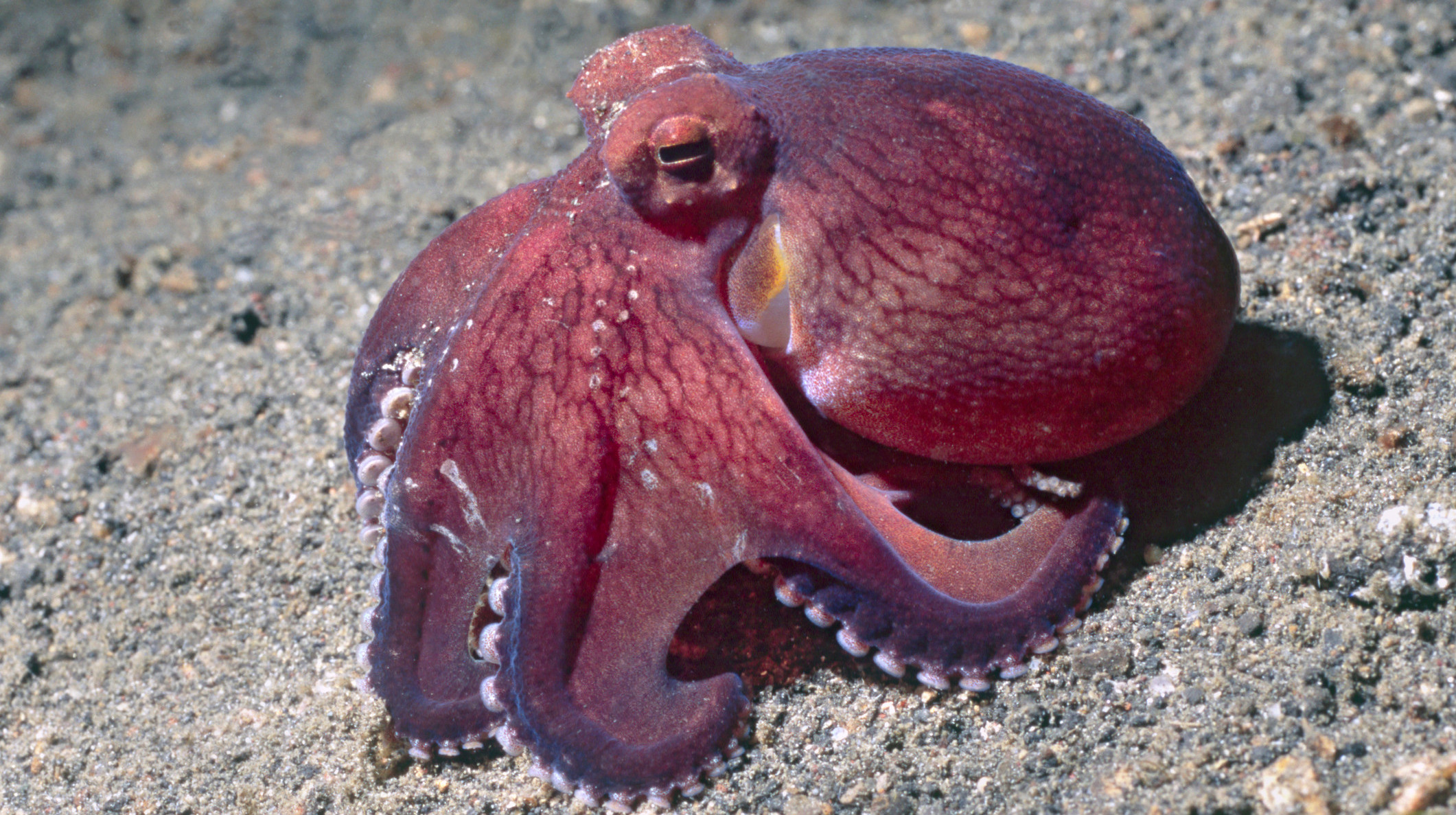If You Were An Octopus, You Could Taste Food With Your Arms
It's a common assumption among humans that other animals experience the world the same way we do. We taste our food with our tongues, therefore all other animals must taste food with their tongues also. (Well, at least the animals that have tongues. And mouths.) This is very arrogant of us. And also wrong.
Octopuses do, in fact, have tongues. They are called radulas. But they aren't used for tasting; instead, they're sharp and hard and used for scraping open shellfish. It would be wrong, though, to assume that octopuses have no sense of taste at all. Recently, New Scientist reports, a group of researchers at Harvard discovered that an octopus' tasting organ is the suckers on its arms. (So yeah, they tear open food with their mouths and taste with their appendages, the complete opposite of us.)
More precisely, octopuses use their arms to taste their prey before devouring it. This is handy, because octopuses hunt by extending their arms blindly into crevices and groping around. If you do that, you run the risk of grabbing something that is bad for you. But, the scientists discovered, the suckers contain cells that responded to "flavors" in the water. Using a technique called electrophysiology that measures cells' electrical activity, they discovered that the cells reacted when they detected toxic chemicals at close range.
How handy would it be to know that something tastes bad/is bad for you before you actually put it in your mouth? Oh, to be an octopus!
